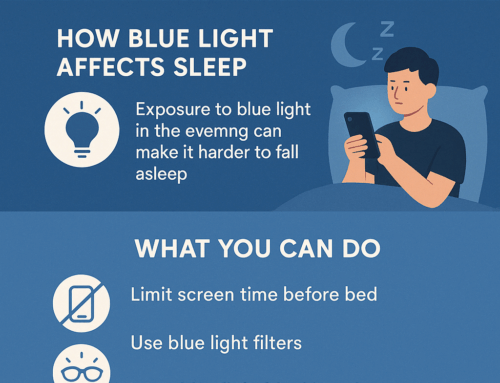The effects of sleep on teen mental health are well documented, but as busy as our lives have become, sleep often takes a backseat to busy schedules, social activities, and the allure of digital entertainment. However, getting enough sleep is crucial for teenagers’ physical and mental well-being. Let’s discuss how sleep affects mental health in teens and provide practical tips to foster better sleep habits.
The Crucial Role of Sleep in Teen Mental Health
Sleep is a fundamental biological need, essential for overall health and well-being. During sleep, the body and mind undergo crucial repair, growth, and rejuvenation processes. For teenagers who are in a critical phase of development, adequate sleep is essential for the following reasons:
- Cognitive Function: Sleep significantly impacts memory, attention, decision-making, and problem-solving abilities. Teens who are sleep-deprived often struggle with concentration, leading to poorer academic performance and increased stress.
- Emotional Regulation: Adequate sleep helps regulate emotions. Lack of sleep can result in mood swings, increased irritability, and heightened emotional responses. Teens with sleep issues are more susceptible to anxiety and depression.
- Physical Health: Poor sleep affects the immune system, making teens more prone to illnesses. It also disrupts growth and development, potentially leading to long-term health issues.
- Behavioral Problems: Sleep-deprived teens are more likely to engage in risky behaviors, including substance abuse and reckless driving, as they seek ways to cope with their fatigue and mood disturbances.
Understanding Sleep Needs and Challenges
The National Sleep Foundation recommends that teenagers aged 14-17 get 8-10 hours of sleep per night. However, many teens struggle to meet this requirement due to various factors:
- Academic Pressure: Homework, exams, and extracurricular activities often lead to late-night study sessions.
- Social Media and Technology: Screens emit blue light, which interferes with the production of melatonin, the sleep hormone, making it harder to fall asleep.
- Irregular Schedules: Irregular sleep patterns, often due to weekend social activities, can disrupt the body’s internal clock, making it difficult to maintain consistent sleep.
- Nutrient deficiencies and poor diet habits: Many teens eat too many highly processed foods and drinks, which can rob the body of necessary nutrients and interrupt healthy sleep patterns.
Tips for Better Sleep Habits
Establishing good sleep habits can help teenagers achieve better sleep quality now and into adulthood and, in turn, improve their mental health. Here are some practical tips:
- Create a Sleep-Friendly Environment: Ensure the bedroom is cool, dark, and quiet. Invest in a comfortable mattress and pillows. Consider using blackout curtains and a white noise machine if needed.
- Set a Consistent Sleep Schedule: Encourage your teen to go to bed and wake up at the same time every day, even on weekends. This helps regulate the body’s internal clock.
- Limit Screen Time Before Bed: Establish a “no screens” rule at least an hour before bedtime and while they are supposed to be sleeping. Encourage activities like reading books, listening to calming music, or practicing relaxation techniques.
- Encourage Physical Activity: Regular exercise can help improve sleep quality. However, avoid vigorous physical activity close to bedtime, as it may interfere with falling asleep.
- Monitor Diet and Caffeine Intake: Encourage a balanced diet and limit caffeine and soda consumption, especially in the afternoon and evening. Heavy meals close to bedtime can also disrupt sleep. To learn more about how nutrition affects mental health, click here
- Teach Relaxation Techniques: Help your teen learn relaxation techniques such as deep breathing, progressive muscle relaxation, or meditation. These can help reduce stress and promote a sense of calm before bed.
- Promote Healthy Daytime Habits: Exposure to natural light during the day, especially in the morning, helps regulate sleep patterns. Encourage outdoor activities and limit long naps, which can interfere with nighttime sleep.
- Address Underlying Issues: If your teen struggles with sleep despite following these tips, it may be helpful to consult an integrative doctor. Sleep disorders, anxiety, depression, or other health issues might be the underlying cause.
Prioritizing sleep is vital for the mental health and overall well-being of teenagers. By understanding the importance of sleep and implementing healthy sleep habits, teens can improve their mood, academic performance, and quality of life. As parents, educators, and caregivers, it’s essential to support teens in developing these habits, ensuring they have the foundation for a healthier, happier future.







Leave A Comment